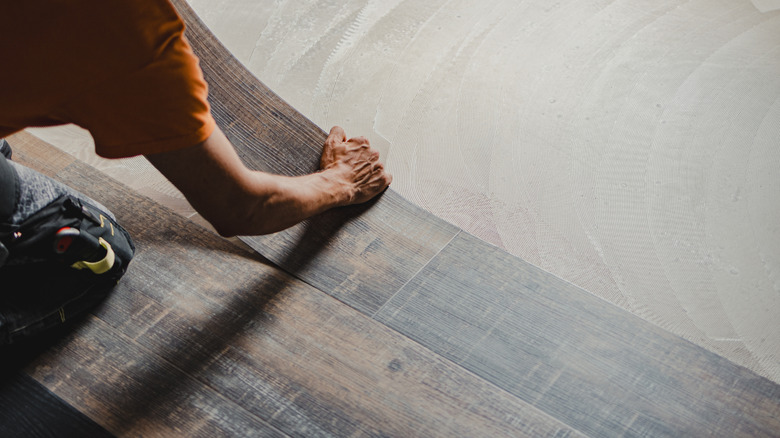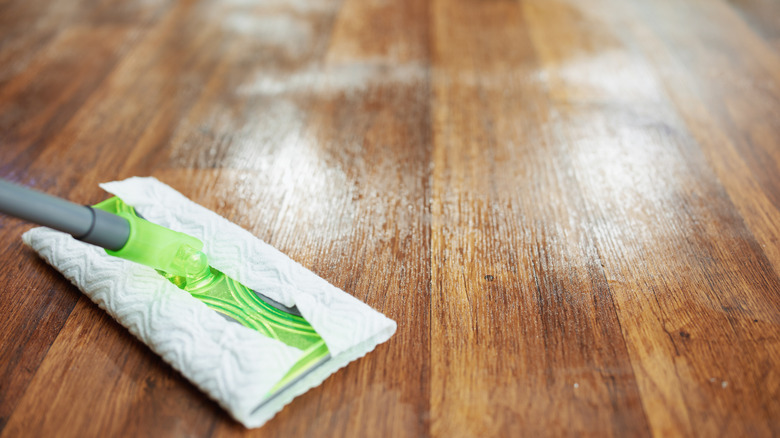How Long Can You Expect Vinyl Floors To Last? Here's What We Found
When considering what type of flooring to install in your home, vinyl floors often come up as one of the top choices, and for good reason. They're incredibly durable, simple to clean, and don't break the bank. Plus, their wide range of colors and styles helps them fit right into any home aesthetic. Considering they can successfully emulate hardwood or stone, you can enjoy a high-end flooring look in your home without shelling out extravagant amounts that you'd have to pay for the real thing. However, for all their benefits, vinyl flooring is still the cost-effective option for a reason. For one, they don't last as long as more luxurious options like hardwood floors. In fact, the typical lifespan of vinyl flooring is between 10 and 20 years — which is much shorter than the multiple decades of good condition that you can expect with hardwood.
Nevertheless, this downside to vinyl plank flooring and its sheet alternative isn't necessarily a reason to avoid installing these practical floors in your home. After all, how long your vinyl floors will actually last depends on a few factors you can control. This includes things like material and installation quality, as well as your maintenance habits. And with just a bit of extra effort and some smart choices, you can maximize the lifespan of your vinyl floors and put off replacement for years to come.
How to extend the life of your vinyl flooring
First things first: Choose higher-quality vinyl flooring material. Options like luxury vinyl tiles (LVT) or luxury vinyl planks (LVP) can actually exceed the typical lifespan of vinyl flooring. In some cases, these can last up to 25 years without showing signs of wear. Beyond choosing the right materials, proper installation is also key, as it will put a stop to issues like lifting, bubbling, or seam degradation — all of which make your vinyl floors last less.
Once your floors are installed, how well you take care of them will also dictate their longevity. For starters, you'll need to learn how to clean vinyl floors so they look brand new. Generally, you should be sweeping or vacuuming daily or every other day, always using a soft brush or vacuum extension to keep dirt and grime from slowly wearing down your floors. Additionally, every week, go over your floors with a damp mop and a pH-neutral cleaning solution that won't damage the surface. For any deep-set stains, turn to a professional cleaning service that can restore your floors' shine without compromising their finish.
Finally, to keep your vinyl floors in tip-top shape, make sure to protect them with furniture pads and area rugs or mats. These will trap dirt to keep it off your floors, as well as prevent heavy objects, pets, and foot traffic from scratching them up. Ideally, high-traffic zones like your entryway, living room, and dining area are the best spots to lay down these protective layers that will keep your vinyl flooring in good condition for longer.

